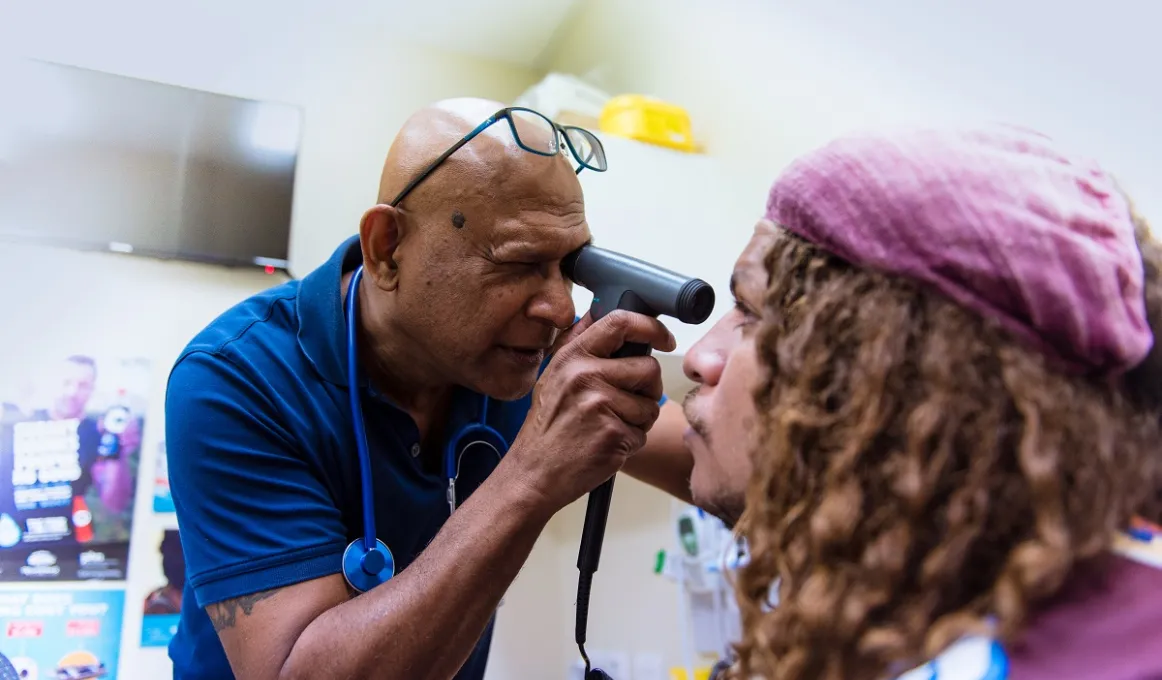Relationships key to better health outcomes

Read about Dr Mark Wenitong and his passion for the 715 Health Check which are vital for Indigenous Australians.
Dr Mark Wenitong is one of a kind. Descended from the Kabi Kabi tribal group of South Queensland, Mark is one of the first Aboriginal men to graduate as a medical doctor and is now a powerful advocate for improving Indigenous health outcomes.
Mark said he was inspired to become a Doctor by his mother who was one of the first Aboriginal Health Workers to be trained in Queensland. Her work with the Cape York community, in particular tackling the surge of sexually transmitted diseases in the region at the time, inspired a passion for better health within the family.
‘Mum’s legacy was what really made me want to become a doctor,’ Mark said.
‘I wanted to be able to help our mob to look after their own health, to provide a cultural lens. For me, that’s why it’s so important that Aboriginal doctors are part of our service system. We can translate research, evidence and even program work into real practice.”’
‘With more Aboriginal doctors, we can relate to our people, overcome barriers and build cultural resonance.’
After studying and graduating from the University of Newcastle in 1995, Mark is now based in Cairns at Apunipima Health Service, working with the local Aboriginal and Torres Strait communities up north, both in the clinic and out in communities.
Mark said, the annual health check for Aboriginal and Torres Strait Islander people, item 715 under the Medicare Benefits Schedule, provides enormous opportunities for GPs to engage with communities about their health needs.
‘The importance of 715s can't be overstated - it's one of the most important innovations that Medicare, and the Government, has brought in,’ Mark said.
With Aboriginal and Torres Strait Islander people 2.3 times more likely to suffer a chronic condition, the annual health check is designed to provide early detection and prevention.
The annual health check is available for Aboriginal and Torres Strait Islander people of all ages, however nationally less than 30% of patients are accessing the check.
With Aboriginal and Torres Strait Islander doctors representing less than 1% of the general practitioner workforce it’s important that all GPs understand the benefits of a 715 for Aboriginal and Torres Strait Islander patients.
‘If Aboriginal people walk into a service and don’t feel welcome, they won’t come back. Access is a big issue - creating a safe space for people to feel welcome is important,’ Mark said.
‘Most GPs can do this fairly well with most people, so it's just a matter of then learning a little bit more about Aboriginal social and cultural issues to be able to relate to these patients in the right way. If you do, you'll make a big difference.
‘Some mainstream practices I've worked with have done really simple things, like putting Aboriginal health posters up in the waiting room or hiring an Aboriginal Health Worker or Aboriginal receptionist to help people feel welcome.’
Mark’s message to health professionals is simple – help your Aboriginal and Torres Strait Islander patients in the same way you help any others.
Find out more
Further information, including resources for patients and health practitioners is available at Health checks for Aboriginal and Torres Strait Islander Australians.